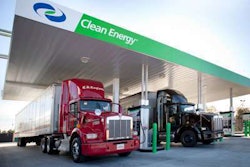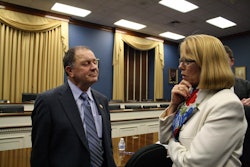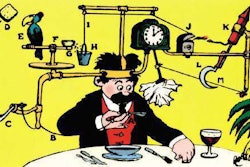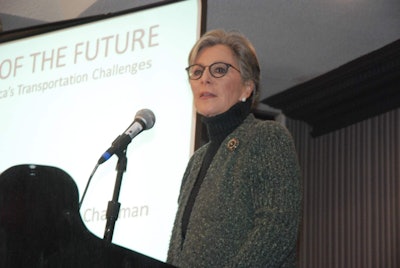 Sen. Barbara Boxer (D-Calif.)
Sen. Barbara Boxer (D-Calif.)Over half of the highway miles traveled in the United States are on roads in less than good condition, said U.S. Sen. Barbara Boxer, chairman of the Senate Environmental & Public Works Committee.
She spoke at the Infrastructure for the Future conference Thursday in Washington, D.C., where experts tied the pressing need for road and bridge improvements to the long-term recovery of the economy. The event was put on by the American Highway Users and the Volvo Group.
The primary problem with funding is that Highway Trust Fund revenue, based on per-gallon fuel taxes, is declining. “Guess what’s going to be in the Highway Trust Fund for 2015?” Boxer asked. “Nothing.”
The difference between trust fund receipts and expenditures on highway spending has been $15 billion in recent years, said Bud Wright, executive director of the American Association of State Highway & Transportation officials.
Most speakers said virtually any approaches should be considered to shore up the fund and ensure long-term stability.
“We must have an increase in the federal fuel tax,” said Bill Graves, president and CEO of the American Trucking Associations. “I’m convinced everyone on Capital Hill knows it.” However, lawmakers continue shirk the responsibility to fully face long-term funding needs, he said. “We keep fighting a plague of intellectual amnesia.”
One solution involving the federal fuel tax would enable “highway users to fix this problem,” Wright said. “We’re talking about average 12-15 cents per gallon increase.”
U.S. Rep. John Delaney, Md., explained another approach, his proposed legislation for creating a “$750 billion revolving 50-year infrastructure fund.” It would start with $50 billion, coming from large corporations buying bonds, with the primary incentive of significant tax break on overseas earnings.
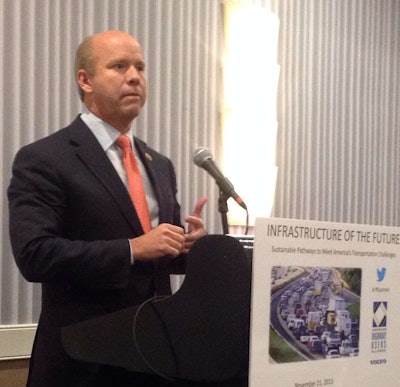 Rep. John Delaney (D-Ind.)
Rep. John Delaney (D-Ind.)Using that base for financing, it would be leveraged for $750 billion of infrastructure lending. He projected it would create over 3 million jobs in 50 years.
Delaney said it’s “the largest piece of bipartisan economic legislation in Congress.” It’s also supported by GOP and Democratic think tanks.
Many of the problems — and potential solutions — involve the balance of state and federal funding for infrastructure improvements.
Virginia has seen great success by revamping its transportation funding system, said Transportation Secretary Sean Connaughton. The change involve several components, notably converting the fuel tax to become part of the state sales tax.
Virginia was motivated partly by bond rating agencies lowering the state’s rating. Also, dealing with the federal government was inefficient because of having to deal with multiple agencies.
Furthermore, there was a lack of focus on spending that would help in moving freight. “The federal program is almost devolving into an urban program,” he said.
Other speakers stressed the need for a primarily federal, “holistic” funding solution because of the connectedness of the nation’s highway system.
Most of the country’s infrastructure was built by “your parents and your grandparents,” said John Porcari, deputy secretary of the U.S. Department of Transportation. “Are we doing right by the next generation?”


